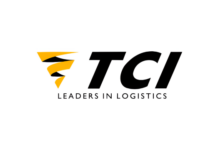US ride-hailing companies Uber and Lyft have created flutter in the US primary markets after filing their S-1 documents, signaling their readiness to launch IPOs. The S-1 filing is similar to draft prospectus in India with the key difference being the option of confidential IPO filing. A confidential IPO filing allows regulators to have a look at necessary disclosures but shields sensitive commercial and financial information from competitors and wider market. Now, an Indian Internet lobby group has requested a similar option in the domestic market for public listings.
In its recommendations to the market regulator SEBI, IndiaTech has advocated this measure to assess investor appetite in the IPO without divulging sensitive information, said a report by the Times of India. Apart from Uber and Lyft, Slack, Pinterest, and Postmates are other prominent startups which have chosen the path of confidential filing for their IPO plans.
Read Also: Upcoming IPOs in 2019 – Forthcoming IPO Calendar in 2019
The lobby group, that has MakeMyTrip chairman Deep Kalra among its founding members, has batted for several other measures to facilitate easy listing of internet companies in India. Among the most prominent in these recommendations are dual voting rights for internet companies – an issue which has found support with stalwarts like former Flipkart CEO Sachin Bansal. Differential voting rights allow tech founders a far greater control over their company, even after diluting their shareholding. Some prominent technology companies like Facebook and Google have dual class share structure.
On its website, IndiaTech lists startups like Ola, Quikr, Lenskart, Urban Ladder, MakeMyTrip, PolicyBazaar and investors including Steadview Capital, SoftBank, and Matrix Partners among its members.
Read Also: Startup listing to get easy as SEBI proposes dual-class shares
As of now, stock market listing process in India requires the companies to file draft prospectus with SEBI and this document is also made available on the websites of stock exchanges where listing of shares is sought. The document is required to be available for public comments for at least 21 days from the date of filing. The lobby group advocates such documents should be made public only after 30 days of filing with the market regulator.




































